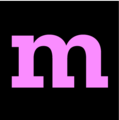Supporting Open Science Hardware
DocuBricks & the Journal of Open Hardware | An Open Project Spotlight
Tobias Wenzel (@MakerTobey) is a scientist, bioengineer and Open Hardware advocate at the University of Cambridge with roots in Germany and Chile. Tobey was selected to join our current round of Mozilla Open Leaders with two of his project, DocuBricks and the Journal of Open Hardware. Together, the two projects form Digital Infrastructure for Open Science Hardware.
I interviewed Tobey to learn more about his Open Science Hardware initiatives and how you can help.
What is Digital Infrastructure for Open Science Hardware?
Open Science Hardware is the intersection of Open Source Hardware and Open Science, where researchers and makers share instrument designs similar to code in Free and Open Source Software. This has been enabled by the recent spread of 3D printers, makerspaces and modular electronic controllers. Still, hardware is different from software. Consider for instance, if you would download a badly documented software, you could still run it on your PC. But if the hardware documentation is bad, you can neither build it nor troubleshoot or modify it. This is why I initiated two projects to create digital tools (read: software / websites / guides) to address specific challenges in documenting and sharing Open Hardware. One, DocuBricks, enables researchers to create high-quality standardised hardware documentations with ease, and another, the Journal of Open Hardware, is the first open access publication venue that includes hardware documentation into the review process and emphasises accessibility (e.g. replicability, calibration, usage protocols).
Why did you start Digital Infrastructure for Open Science Hardware?
I wanted to find a better way to organise my equipment designs and collaborations at the moment, while also establishing a code of conduct for my own research group one day. Experimental sciences and engineering are always dependent on instrumentation (design, usage, access, modification, materials, protocols, data). Still, access to frequently used custom equipment and protocols (as Open Source Hardware) is almost entirely ignored by the scientific community. This is surprising because regular training and practises in the sciences increasingly include open data, open access, and detailed statistical analysis. To address this unfulfilled potential of hardware collaboration, I initiated the two infrastructure initiatives I mentioned before.
What challenges have you faced working on these projects?
Most people still have not even heard about Open Science Hardware, and those who have often lack the time to fully document and publish their designs. With DocuBricks we try to make documentation easier and more straight-forward, while the journal provides scientific recognition to the inventors. A lot of our time is spent in coaching and advising as well as following up on voluntary commitments. This is what it takes to start a movement and make sure that in science we actually take advantage of digitisation and digital fabrication methods. There must be 1000 reasons why this would put science in a better place (less hand-over losses, more accessibility, and increased reproducibility are three of them).
What are you most proud of accomplishing at MozFest or in the mentorship program?
We have finally tidied up our DocuBricks account on GitHub (where we share our open source code and keep track of development goals)! This makes it much easier to contribute to the project for those awesome people who are keen but do not personally know us yet.
How have your projects been impacted by Mozilla Open Leaders?
The mix of training, networking and outreach was really excellent! It has advanced our projects in many ways. I can warmly recommend the project to everyone tinkering on their open projects at various stages.
How can others help you continue the work on Digital Infrastructure for Open Science Hardware?
Please help spreading the word of Open Source Hardware and our infrastructure for high-quality open projects: www.docubricks.com; www.journalofopenhardware.org; Upload your own Open Science Hardware Project: www.docubricks.com and publish it in the Journal of Open Hardware: https://openhardware.metajnl.com/.
If you can code, we invite you to contribute with us to the code of the open source documentation infrastructure (documentation standard plus website repository): https://github.com/DocuBricks. Check out our issue lists within respective repositories for the website, editor and viewer, where we manage our goals and wishlist items! We are particularly looking for web development help to improve the website and social media features.
Is there anything else you’d like to add?
Come talk to us! (GitHub issues or docubricks@gmail.com) The Global Open Science Hardware (GOSH) movement is full of amazing people and I promise that you won’t regret getting involved.
What meme or gif best represents your project?
Mozilla Open Leaders offers mentorship and training on working open. Join a cohort of project leads fueling the Internet Health movement. Receive mentorship and training through the Mozilla community in this 14-week online program on working open. Apply today!
